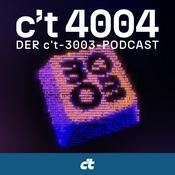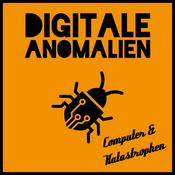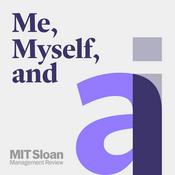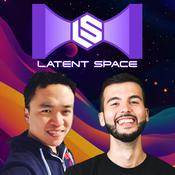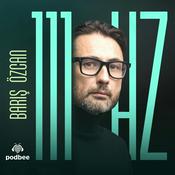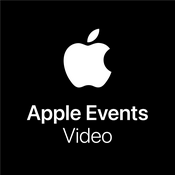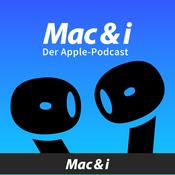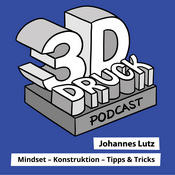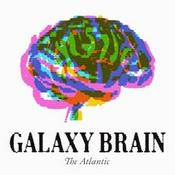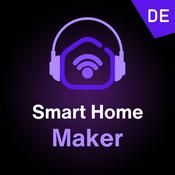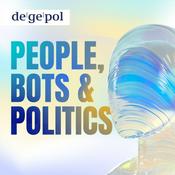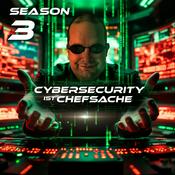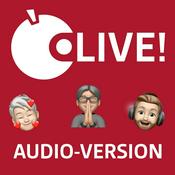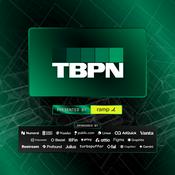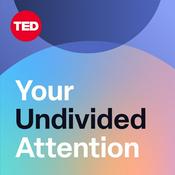10 Episoden

Jay Tennier: How Testing Platform Rainforest QA Tests Itself
09.12.2025 | 1 Std. 40 Min.
In this episode of On Rails, Robby is joined by Jay Tennier, Engineering Manager at Rainforest QA, where he's spent over seven years working across a long-lived Rails monolith and supporting services. They explore how Rainforest maintains their platform with a small team, and the practical decisions that come with that reality. Jay shares lessons from pulling microservices back into the monolith, why they wrap third-party services in adapters, and how they push analytics work to BigQuery instead of straining their Rails database. The conversation covers testing philosophy including "wet tests" over DRY abstractions, using dry-monads for complex service flows, and how celebrating code deletion has become part of their engineering culture.Social + Web PresenceLinkedIn: https://www.linkedin.com/in/jaytennier/GitHub: https://github.com/jaytennie/ Twitter/X: https://x.com/jaytennierBluesky: https://bsky.app/profile/jaytennier.bsky.socialCompany/Org LinksHomepage: https://www.rainforestqa.com/Tools & Libraries MentionedActive Record: Rails ORM. BigQuery: Hosted analytics warehouse. Cube.js: API layer for querying analytics data. DRY-Monads: Structured success/failure flow. FactoryBot: Test data factories. Grape: Ruby API framework.GoodJob: Background job processor. Q Classic: DB-backed job queue. Redash: SQL-based dashboards and reporting. RSpec: Rails testing framework. React: Front-end application framework. Haml: Legacy templating engine. Segment / Mixpanel: Event tracking pipelines.Books MentionedConfident Ruby by Avdi Grimm Exceptional Ruby by Avdi Grimm Working Effectively with Legacy Code by Michael Feathers Send us a textOn Rails is a podcast focused on real-world technical decision-making, exploring how teams are scaling, architecting, and solving complex challenges with Rails. On Rails is brought to you by The Rails Foundation, and hosted by Robby Russell of Planet Argon, a consultancy that helps teams modernize their Ruby on Rails applications.

Kayla Reopelle: What Your Rails App Is Trying To Tell You
19.11.2025 | 1 Std. 2 Min.
In this episode of On Rails, Robby is joined by Kayla Reopelle, a lead software engineer at New Relic, where she works on both the Ruby Agent and OpenTelemetry RubyGems. They explore what observability means for Rails developers—not just as a debugging tool, but as a way to build clearer, more reliable systems. Kayla explains OpenTelemetry's vendor-agnostic approach to instrumentation and shares practical ways to experiment with traces, metrics, and logs in both production and local development.GitHub: https://github.com/kaylareopelle 🧰 Tools & Libraries MentionedActiveSupport::Notifications: Rails’ pub/sub API used for instrumentation.AppSignal: Rails-friendly APM and error tracking.AWS X-Ray: Distributed tracing for AWS services.Datadog: Full-stack observability platform.Elastics Profiling Spec: Donated profiling format for OpenTelemetry.Grafana: Open-source dashboards and visualization.Honeybadger : Error monitoring for Ruby apps.Jaeger: Distributed tracing system (CNCF).New Relic Ruby Agent: APM agent for Ruby and Rails.ObservableGauge (OTel Metrics): Async gauge for snapshots like queue size.OpenTelemetry Collector: Pipeline for receiving and exporting telemetry data.OpenTelemetry Logger Bridge: Sends Ruby logger output to OTEL.OpenTelemetry Ruby: Vendor-agnostic telemetry for Ruby.OpenTelemetry Ruby SIG: Community group maintaining OTEL Ruby.Prometheus: Metrics collection and storage.Rack Middleware: Web middleware stack used in many Rails instrumentations.Rails Structured Logging / Event Reporter: Structured logs built into Rails.Send us a textOn Rails is a podcast focused on real-world technical decision-making, exploring how teams are scaling, architecting, and solving complex challenges with Rails. On Rails is brought to you by The Rails Foundation, and hosted by Robby Russell of Planet Argon, a consultancy that helps teams modernize their Ruby on Rails applications.

Miguel Conde & Peter Compernolle: Inside Gusto’s Rails Biolith
03.11.2025 | 1 Std. 32 Min.
In this episode of On Rails, Robby is joined by Miguel Conde and Peter Compernolle from Gusto, where they work on a "biolith"—two distinct Rails monoliths serving 600+ engineers. Peter leads the HIPAA-compliant benefits domain, while Miguel is extracting the time product from the main monolith. They explore how Gusto identifies boundaries, manages temporal data, handles eventual consistency, and navigates the trade-offs of GraphQL federation.🧰 Tools & Libraries MentionedActiveAdmin: Admin UI for Rails.after_commit_everywhere: Run code after commits.Datadog: App and CI/CD observability.FactoryBot: Build test data.GraphQL: API layer for SPAs.Kafka: Event streaming backbone.Packwerk: Enforce boundaries in monoliths.PaperTrail: Model change auditing.React: Front-end framework.Sidekiq: Background job processing.Sorbet: Gradual Ruby types.TypeScript: Typed JavaScript.explicit_activerecord: Guard writes to models.Ruby Koans: Learn Ruby by practice.Cracking the Coding Interview: Interview prep book.Gusto Engineering Blog: Posts from Gusto engineers.Send us a textOn Rails is a podcast focused on real-world technical decision-making, exploring how teams are scaling, architecting, and solving complex challenges with Rails. On Rails is brought to you by The Rails Foundation, and hosted by Robby Russell of Planet Argon, a consultancy that helps teams modernize their Ruby on Rails applications.

Alexander Stathis: Scaling a Modular Rails Monolith at AngelList
21.10.2025 | 1 Std. 28 Min.
In this episode of On Rails, Robby is joined by Alexander Stathis, a Principal Software Engineer at AngelList, where Rails powers complex investment, accounting, and banking business logic across a modular monolith structure. They explore how AngelList maintains conceptual boundaries in their codebase, uses gradual typing to influence their Ruby style away from Rails “magic,” and why they’ve adopted multiple async job solutions for different types of work rather than seeking a one-size-fits-all approach. Alex shares insights on consolidating microservices back into their monolith, creating the Boba gem to extend type generation capabilities, using production data subsetting tools for local development, and successfully onboarding engineers without Rails experience in under a month while staying current on Ruby 3.4 and Rails 7.2.Tools & Libraries MentionedActive Job – Framework-agnostic job API built into Rails.ASDF – Tool version manager.Boba – AngelList’s Sorbet compiler extension.Delayed Job – Database-backed job processor.FactoryBot – Test data builder.GoodJob – Postgres-backed Active Job processor.GraphQL Batch Loader – Batching utility for GraphQL.GraphQL Ruby – Ruby GraphQL implementation.Linear – Issue tracking tool.Money – currency handling library.Packwerk – Shopify’s modular boundary enforcement tool.Paperclip – Legacy file attachment gem for Rails (deprecated).RSpec – Ruby testing framework.Sidekiq – Redis-backed job framework.Solid Queue – Rails 8 Active Job adapter.Sorbet – Gradual static type checker for Ruby.State Machines – Finite state machine support.Tapioca – Sorbet RBI file generator.Temporal – Workflow orchestration system.Tonic – De-identified datasets platform.Will LarsSend us a textOn Rails is a podcast focused on real-world technical decision-making, exploring how teams are scaling, architecting, and solving complex challenges with Rails. On Rails is brought to you by The Rails Foundation, and hosted by Robby Russell of Planet Argon, a consultancy that helps teams modernize their Ruby on Rails applications.

Florent Beaurain: Optimizing Rails Tests at Doctolib Scale
07.10.2025 | 1 Std. 18 Min.
In this episode of On Rails, Robby is joined by Florent Beaurain, a longtime Rails engineer at Doctolib, home to one of the largest Rails monoliths in Europe with over 3 million lines of code and 400+ engineers. They explore how Doctolib’s team tackled massive test suite performance issues, including cutting one engine’s test time from seven minutes to under one minute. Florent shares insights from managing 84,000 tests, scaling across 10 PostgreSQL databases, and maintaining Rails upgrades across a fast-moving organization using systematic approaches like dual-boot deployments and careful backporting strategies. Tools & Libraries MentionedAWS Aurora (PostgreSQL) – Production database platform, scaled to 10+ writers and 15+ readers.Capybara – End-to-end testing of UI flows in the monolith.Capybara Lockstep –JavaScript sync layer reducing flakiness in React-driven feature specs.Datadog – Application performance monitoring for production systems.Docker – Local PostgreSQL and other data stores.FactoryBot – Identified as a major performance bottleneck in large test suites.factory_fixtures – Shopify gem extending fixtures with inline factory-style overrides. GitHub Copilot – Workflow automation and onboarding support.Heroku CI – Previously used for parallelized CI builds before moving to custom infrastructure.Jenkins – Original CI platform before scaling up to more powerful infrastructure.Minitest – Primary test framework, used throughout the monolith with some extensions.Packwerk – Used to modularize their monolith into engines with explicit boundaries and dependency declarations. PostgreSQL – Core relational database behind their production and local environments.React – Primary frontend framework, integrated into the Rails monolith via a single-page app architecture. Ruby on Rails – The framework behind Doctolib’s 3-million-line monolith and most of their core product infrastructure.safe-pg-migrations – Tool to reduce downtime risks during large-scale schema changes.Sentry – Error tracking and Send us a textOn Rails is a podcast focused on real-world technical decision-making, exploring how teams are scaling, architecting, and solving complex challenges with Rails. On Rails is brought to you by The Rails Foundation, and hosted by Robby Russell of Planet Argon, a consultancy that helps teams modernize their Ruby on Rails applications.
Weitere Technologie Podcasts
Trending Technologie Podcasts
Über On Rails
Höre On Rails, Bits und so und viele andere Podcasts aus aller Welt mit der radio.de-App
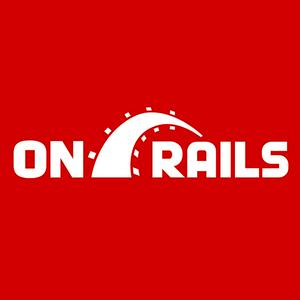
Hol dir die kostenlose radio.de App
- Sender und Podcasts favorisieren
- Streamen via Wifi oder Bluetooth
- Unterstützt Carplay & Android Auto
- viele weitere App Funktionen
Hol dir die kostenlose radio.de App
- Sender und Podcasts favorisieren
- Streamen via Wifi oder Bluetooth
- Unterstützt Carplay & Android Auto
- viele weitere App Funktionen


On Rails
App laden,
loshören.





